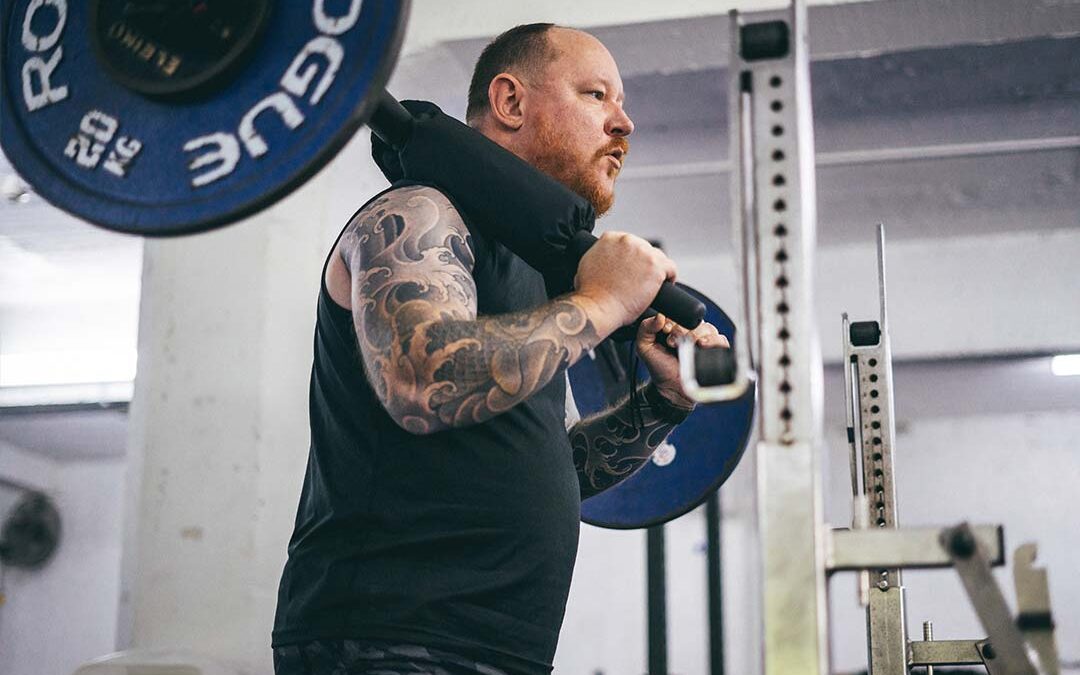You’re well into your lifting journey and have been thriving off the consistent string of Personal Bests (PBs). Perhaps at first you couldn’t squat all the way down and stand back up without losing balance, now you can. Maybe during your first Bench Press session you pressed the 10kg Barbell, and now you’re repping out 25kg. Personal bests represent two things clearly. Firstly, the accumulation of your efforts over time. Secondly, your newfound physical strength and function. However, what happens when PBs don’t come so easily? Today we will troubleshoot common issues when trying to make progress in the gym and what you can do about it. For getting stronger for life, you’ve sometimes got to look beyond the load.
Why does getting stronger matter?
To begin with, why should we worry about setting new personal bests anyway? Is it just to stroke to ego, or does getting stronger actually matter for our health and fitness outcomes? The answer is yes, to both actually! Motivation can be fickle, but setting clear and defined goals and achieving them can place people into a “high performance cycle” (1). Of course, there are potential pitfalls. It’s important to set realistic goals as not to hurt someone’s self-esteem if they were to fall short (1). Knowledge is power, however. Leveraging motivational tools such as achieving personal bests can help encourage people to stay the course and reap the rewards. And what are those rewards? Well, quality of life and quite possibly, reducing the risk of death due to disease. Research shows getting stronger can improve health outcomes, and it’s not enough to simply “workout” (2). In a study using a nationally representative sample of U.S. adults diagnosed with cancer, the effects of skeletal muscle strength and engagement in resistance training on the overall risk of death due to cancer, was analysed. It was found that those who got stronger, not just exercised, received the maximal risk reduction. Although an extreme example, getting stronger has profound implications.
Why do we stall when getting stronger?
Without delving too deep into physiology, stalls or plateaus can occur for a myriad of reasons. Those newer to training, especially if they are coming from a less developed base of fitness, have the ability to rapidly improve. Early strength gains or increases in performance are attributed heavily to neuromuscular factors such as intramuscular coordination, and the strength and frequency of signals sent from the brain down to the muscle (or muscles!) in question. These neuromuscular gains tend to occur sooner than morphological changes (increases in muscle mass) and therefore, provide a sense of rapid improvement (3). Adding new muscle tissue takes time and also requires a dedicated approach to the following:
- Sleep,
- Meeting energy and protein needs,
- Making sure effort is high enough in training,
- Appropriate programming (not doing too much or too little).
Long term strength will be influenced by neuromuscular, morphological (muscle size) and other factors (4). Since building muscle takes time, we need to understand personal bests will still happen, just not as frequently. This is why realistic goal setting is crucial to staying the course and remaining motivated. On your end, simply resting enough and eating well, will make a huge difference. Our Strength Coaches at Sydney Strength Training are experts in their field and can help assess the best programming strategies to keep you making progress. They will also keep you accountable and make sure you give each workout your best. Of course, they are here to troubleshoot should any lifestyle factor or programming issue negatively influence the development and expression of strength.
Keep getting stronger, for life
Getting stronger is a lifelong pursuit. Aiming for realistic personal bests and achieving them is incredibly rewarding, but also a reflection of getting healthier and stronger for life. As one might ask “what came first, the chicken or the egg?”, getting stronger and reaping the benefits is circular cause and consequence in action. Was it getting stronger that lead you to being healthier? Or, could the benefits come from doing things that support the goal of getting stronger? This includes eating well, sleeping well, and having strong social connections for motivation and accountability. Either way, in the pursuit of getting stronger for life, look beyond the load and see where it takes you. If you’re looking for expert advice in reaching your goals, you can reach us here.
References:
- Frontiers | Goal Missed, Self Hit: Goal-Setting, Goal-Failure, and Their Affective, Motivational, and Behavioral Consequences (frontiersin.org)
- Cancer-Specific Mortality Relative to Engagement in Muscle-Strengthening Activities and Lower Extremity Strength – PubMed (nih.gov)
- Neural adaptations to long-term resistance training: evidence for the confounding effect of muscle size on the interpretation of surface electromyography (physiology.org)
- Muscle size, neuromuscular activation, and rapid force characteristics in elderly men and women: effects of unilateral long-term disuse due to hip-osteoarthritis (physiology.org)

